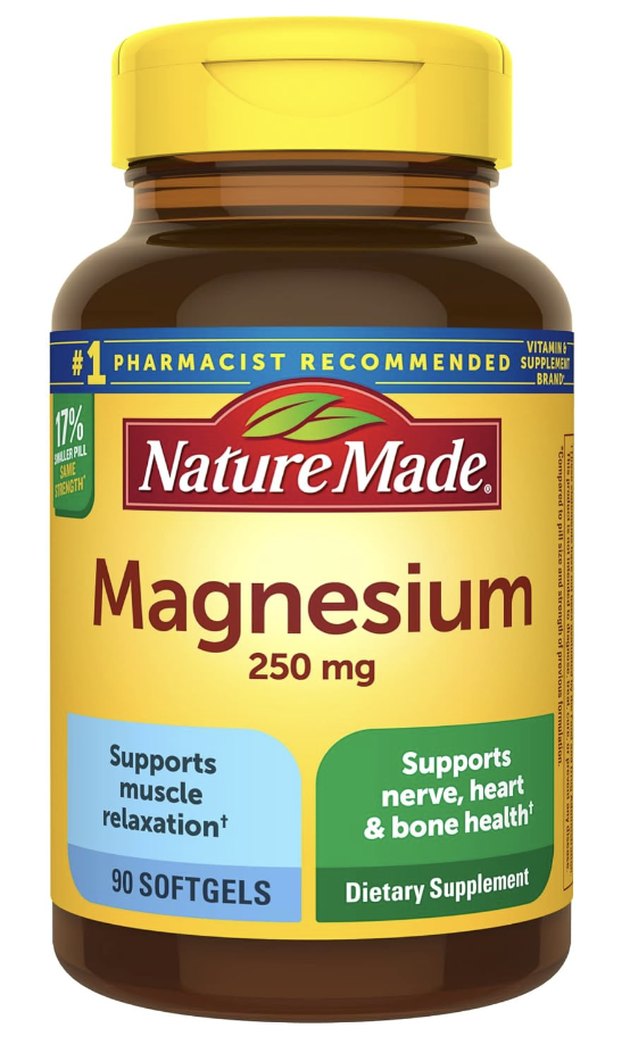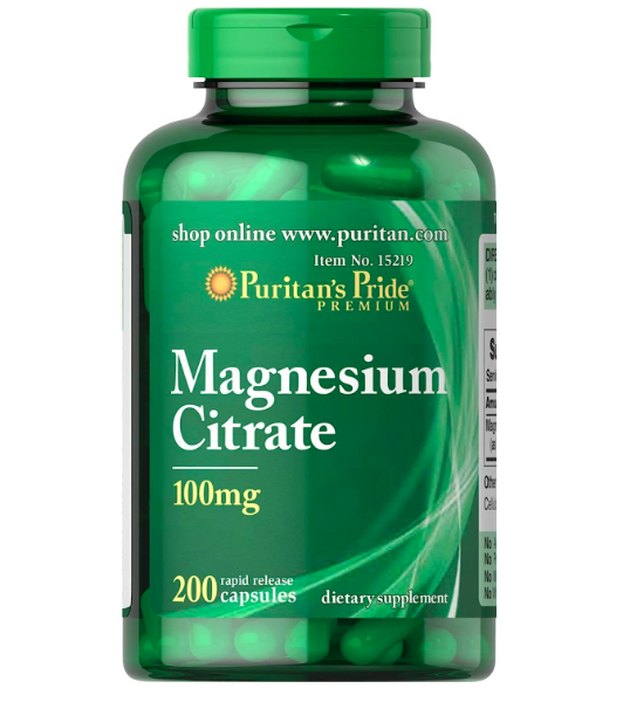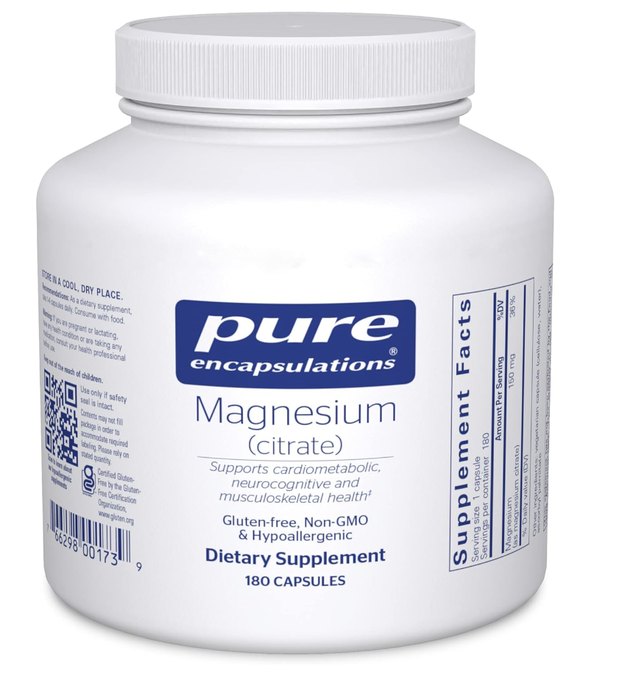
Your body uses the nutrient magnesium in a number of different crucial processes. Magnesium benefits include regulating blood sugar, blood pressure and muscle and nerve function and helping make muscle protein, bone and DNA, according to the Office of Dietary Supplements (ODS).
Adults need between 310 and 420 milligrams of magnesium a day, according to the ODS, but many fall short. When you're not getting enough magnesium, you might turn to a supplement to help you meet your daily needs. But there are a wide range of magnesium supplements on the market that contain different forms of magnesium that may be more easily absorbed.
Video of the Day
Video of the Day
Two common types of magnesium supplements are magnesium oxide and magnesium citrate. Curious how they stack up? Keep reading for everything you need to know about magnesium oxide versus citrate.
What Are the Benefits of Magnesium Oxide?
Magnesium oxide is a common form of magnesium supplement that is used to ease heartburn and as a laxative, especially for quickly emptying your GI tract, like before surgery, according to the National Library of Medicine (NLM). It can also help people who aren't getting enough magnesium in their diet to correct that deficiency.
In a small March 2017 Journal of Clinical Oncology study, magnesium oxide helped people with cancer sleep better after chemotherapy.
Dosage
Per the NLM, magnesium oxide is usually taken as a tablet or capsule four times a day. You shouldn't take it as a laxative longer than a week or as an antacid longer than two weeks.
Side Effects
Some people experience cramping or diarrhea when they take magnesium oxide. It's also not as easily absorbed by the body as some other forms of magnesium, according to the ODS.
A Brand to Try
What Are the Benefits of Magnesium Citrate?
Magnesium citrate is usually used as a laxative to treat constipation, according to the NLM. It helps by pulling water into the stool and making it easier to pass. You might also use it before a colonoscopy, for example, to empty your large intestine.
According to the ODS, small studies suggest your body absorbs magnesium citrate more completely than magnesium oxide. Because a higher percentage of the magnesium contained in magnesium citrate supplements is absorbed, these supplements don't need to pack in as much total magnesium to have the same effect as magnesium oxide supplements.
Dosage
Magnesium citrate often comes as a powder you mix with a a liquid or a pre-mixed solution. Drink it with plenty of water and don't use it for more than a week, per the NLM.
Side Effects
You will likely have a bowel movement within a few hours of taking magnesium citrate (that's the point, after all!). But if you have severe loose, watery stools, blood in your poop or you're unable to poop, stop taking the magnesium and talk to a doctor, according to the NLM.
Brands to Try
Other Types of Magnesium
Magnesium citrate, magnesium gluconate and magnesium lactate are among the most popular forms of magnesium because they're absorbed more easily, according to Mount Sinai.
Other types include:
- magnesium carbonate
- magnesium sulfate
- magnesium chloride
- magnesium glycinate
- magnesium aspartate
- magnesium hydroxide
So, Which Type of Magnesium Is Best?
When it comes to magnesium oxide versus citrate, citrate is absorbed more easily and therefore may be the best option for you, especially if you're looking to relieve constipation fast. Talk to your doctor before starting any new supplement, especially if you're curious about long-term use.
Warning
Taking high doses of magnesium supplements could lead to nausea, diarrhea, abdominal cramping and an irregular heartbeat. You shouldn't take more than 350 milligrams of magnesium in supplement form, per the ODS. Magnesium supplements can also interfere with antibiotics and osteoporosis medications.


